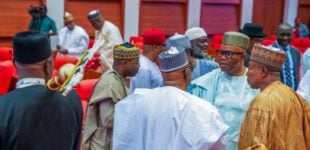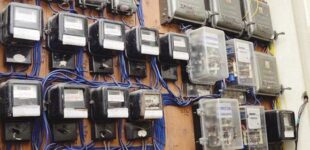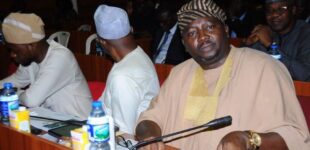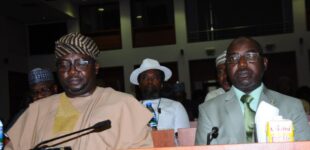Nigeria’s curriculum becoming obsolete, says Lagos education commissioner

Folashade Adefisayo, Lagos commissioner for education, says Nigeria’s education curriculum is becoming obsolete.
Speaking at the ongoing 2021 Lagos ‘Ehingbeti’ Economic Summit on Wednesday, Adefisayo said graduates no longer function as required at their work places because the knowledge they possess is not in line with current realities.
“I would like to focus my attention on we should not optimise obsolescence. What is happening now is that our educational system, as a result of COVID-19 and other happenings, is becoming obsolete if it has not become one,” she said.
“This is because graduates in the workforce are unable to function as required in their work duties in various industries, so definitely there is some sort of dysfunction in the educational system.”
The commissioner said Lagos state is changing the approach to education by enhancing curriculum and promoting technical knowledge.
She said the government is providing alternative option to students who are unable to proceed to the university.
“One strategy we (Lagos state ministry of education) are looking at is giving all schools the option of either writing WASSCE and go to the university or provide comprehensive school systems that will integrate the curriculum with 21st century skills, way beyond vocational skills such as tailoring, etc,” she said.
“Also, these comprehensive schools will teach students team work, leadership, digital literacy — not ‘Yahoo-Yahoo’, ability to use technology, attitudinal skills, etc.
“We do not have enough teachers and even the teachers we have, with all due respect, because they do not have the teachers skills yet. So we need to address a teachers training curriculum.
“We have to integrate technology into teaching and learning, this is another strategize we have to invest into it. We need funding, so we need to work with the private sectors, development partners and NGOs so we can all actualize this vision that end of every educational system, every child we have the option of doing whatever they what to do.”
In his remarks, Abubakar Suleiman, managing director of Sterling Bank, said Nigeria needs to redefine its commitment to education.
He said there must be change of orientation on education financing, saying such funds must be considered as a capital expenditure worth investing on.
“We need to re-strategize on how our education system is delivered as the world is rapidly changing.
“I am of the view that the educational system we have today cannot deliver the human resources that we need today, let alone for the future.
“The resources that we have today (both private and public sector) is not sufficient to run the whole system, we will not be able to provide education for everyone.
“The number of people that are qualified to teach is insufficient because it takes too much time to turn people into a teacher. We need to rethink who a teacher is and where teaching goes on.
“All the reasons that the government borrows money for, none is important than borrowing money fro the future of our children. The repayment of the borrowings today is likely to come for the children we are training today.
“The government should be responsible for commercialising every aspect of human capital development so it can scale.”
Other panellists at the session include Muhammadu Sanusi, former emir of Kano; Chukwuemeka Nwajiuba, minister of state for education; Akin Abayomi, Lagos commissioner of health; among others.















There are no comments at the moment, do you want to add one?
Write a comment